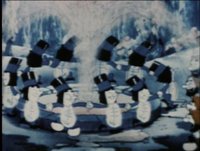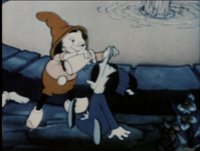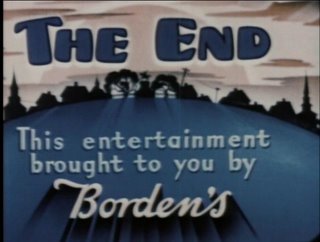
I'd requested a color section for My Name's Friday, but it wasn't in the publisher's budget. So now I get to post one.
 My Name's Friday was released five years ago; since that time I've been interviewed on broadcast, satellite and internet radio, as well as on cable TV, countless times. The first question is almost always the same: "What made you decide to write a book about Jack Webb and Dragnet?"
My Name's Friday was released five years ago; since that time I've been interviewed on broadcast, satellite and internet radio, as well as on cable TV, countless times. The first question is almost always the same: "What made you decide to write a book about Jack Webb and Dragnet?" 
The answer is simple: the man and the show deserved one.
By the time My Name’s Friday came out, Webb and his most famous creation had taken quite a drubbing over the years, most recently at the hands of cable’s TV LAND. Once upon a time, TV LAND trumpeted its vision of “preserving our television heritage.” No less an icon than Dick Van Dyke was its spokesperson. Yet once they got their hands on Dragnet (specifically the revival series Dragnet 1967-70), they turned Webb’s Joe Friday into a joke; an extension of Dan Aykroyd’s parody version from the 1987 feature film. Instead of celebrating Dragnet’s undeniable influence on police drama, or Webb’s contribution to television, TV LAND’s promos simply made Sgt. Friday out to be a humorless, obtuse, one-dimensional police hack, blind to the flaws of the Department he served.
 This approach was in keeping with latter-day criticism, which belittled Dragnet for being reactionary, for brooking no shades of grey, for unrealistically portraying the counterculture, for daring to suggest that the LAPD stands for honesty, integrity and solid police work. Granted, a few episodes from the revival years unwittingly provided ammunition for critics, but it was irresponsible to tar the entire series with the same brush – and yet, that’s what happened.
This approach was in keeping with latter-day criticism, which belittled Dragnet for being reactionary, for brooking no shades of grey, for unrealistically portraying the counterculture, for daring to suggest that the LAPD stands for honesty, integrity and solid police work. Granted, a few episodes from the revival years unwittingly provided ammunition for critics, but it was irresponsible to tar the entire series with the same brush – and yet, that’s what happened.
More distressing was how latter-day TV producers – with the notable exception of Dick Wolf – tried to distance themselves from Webb and his “controlled,” “deadpan” approach to filmmaking.
 Richard Levinson and William Link (Columbo), Steven Bochco (Hill Street Blues) and others went on record declaring that Dragnet had no influence on their shows – or if it did, that they went out of their way to do the opposite.
Richard Levinson and William Link (Columbo), Steven Bochco (Hill Street Blues) and others went on record declaring that Dragnet had no influence on their shows – or if it did, that they went out of their way to do the opposite. 
But it’s no use. As I wrote in the Epilogue: “Every time a TV cop questions a colorful witness, uses a code number to describe a crime, advises a suspect of his rights, fills out paperwork, or engages in light banter with his or her partner, the spirit of Sgt. Friday is there. Every drama series of any genre that heightens suspense through close-ups, music and terse dialogue is walking down the trail blazed by Jack Webb.”

I did not want it forgotten that, back in the day, Webb was hailed as a genius – the man who had lifted TV out of the dark ages. Dragnet proved that television drama did not have to be live to be critically acclaimed or highly rated. With his liberal use of close-ups, Webb proved the intimacy of television would be its greatest asset. The rerun series, Badge 714, proved to TV execs that off-network syndication was where real profits could be had. The 1954
 feature proved that audiences would pay to see their favorites on the big screen. The 1967 revival proved that a cancelled series could make a successful return.
feature proved that audiences would pay to see their favorites on the big screen. The 1967 revival proved that a cancelled series could make a successful return.And so I wrote My Name’s Friday. Would it make a difference? I certainly hoped so. Leonard Maltin called me and said he thought the book was “dynamite – just terrific.” The Mystery Writers of America – one of the first professional bodies to recognize Dragnet’s greatness, thrice honoring it with its distinguished Edgar Allan Poe
 Award - accorded My Name’s Friday the honor of an Edgar nomination.
Award - accorded My Name’s Friday the honor of an Edgar nomination.The week the book was released, TV LAND pulled Dragnet 1967-70 from its schedule.
Five years later, sadly not much has changed. Webb’s oeuvre has not undergone any sort of critical re-evaluation – his legacy has gone from genius, to joke, to invisible.
 Four years ago, Dick Wolf brought Dragnet back as an hour-long drama that, despite mostly positive reviews, was ignored by audiences; an attempt to “revitalize” the format proved a disaster. Last year, Universal Home Video released a DVD set of the seventeen Dragnet 1967 episodes – arguably the best of the revival years. Sales were only fair, and there are no present plans to market the remaining three seasons, much less provide an authorized release of
Four years ago, Dick Wolf brought Dragnet back as an hour-long drama that, despite mostly positive reviews, was ignored by audiences; an attempt to “revitalize” the format proved a disaster. Last year, Universal Home Video released a DVD set of the seventeen Dragnet 1967 episodes – arguably the best of the revival years. Sales were only fair, and there are no present plans to market the remaining three seasons, much less provide an authorized release of the original series. Consequently, it’s unlikely that the Webb theatrical features (Pete Kelly’s Blues, The D.I., etc.) will ever receive the special edition treatment. It’s our loss.
the original series. Consequently, it’s unlikely that the Webb theatrical features (Pete Kelly’s Blues, The D.I., etc.) will ever receive the special edition treatment. It’s our loss. In 1987, director William Friedkin (The French Connection) said, “I’ve never seen a better police show than Dragnet.” There’s a reason for that.
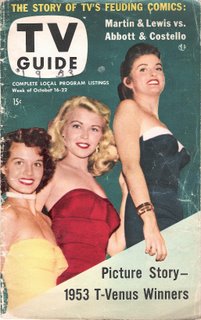

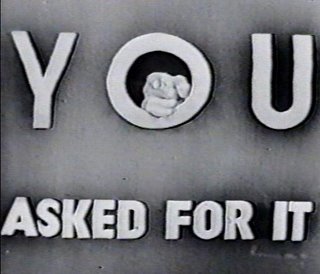
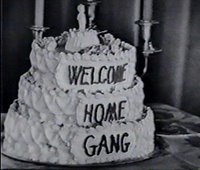

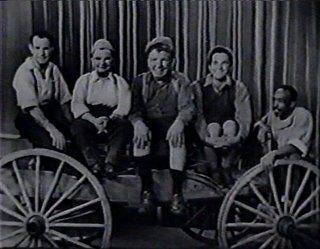
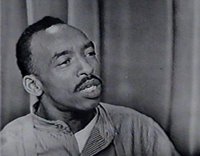
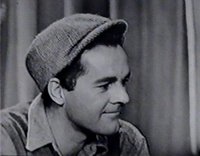
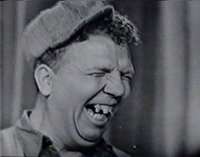
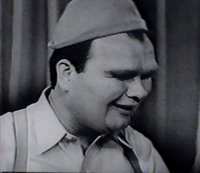
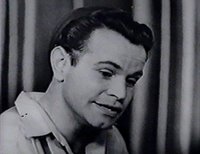
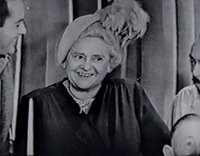
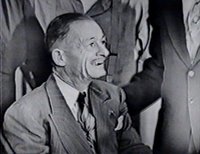 ...
...
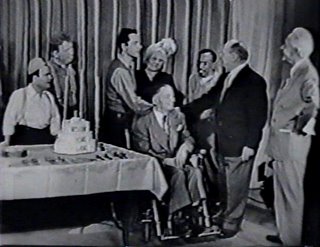
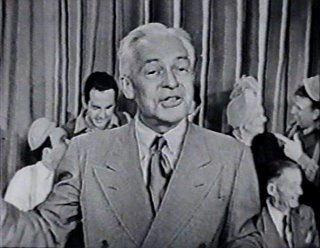
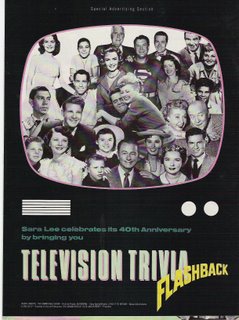
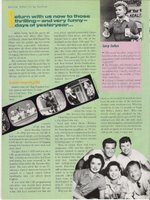
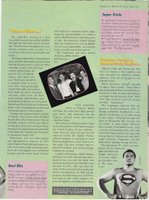
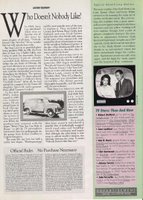
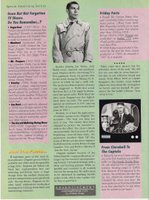

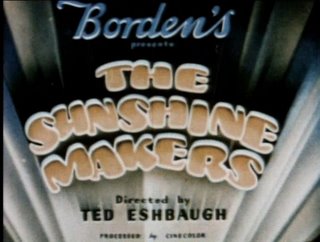

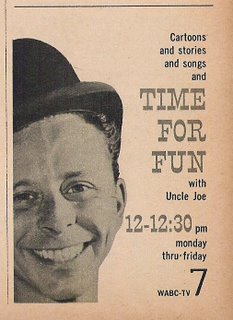

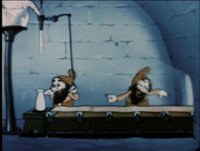


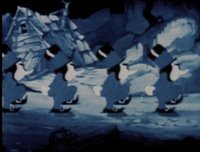 The story is simplicity itself. The happy elves harness the sun to produce "bottled sunshine." The gloomy elves ("We're happy when we're sad") that live in the dark forest next door try to stir up trouble. This leads to a full-fledged battle that they are destined to lose, for goodness and light will always triumph.
The story is simplicity itself. The happy elves harness the sun to produce "bottled sunshine." The gloomy elves ("We're happy when we're sad") that live in the dark forest next door try to stir up trouble. This leads to a full-fledged battle that they are destined to lose, for goodness and light will always triumph.